Photographs: Sivaram V/Reuters TN Ninan
If oil prices stay high or climb higher, and if the monsoon does not recover momentum, the country will have to moderate its hopes about how soon the economy can be set right.
Two things can derail the economy: a bad monsoon and high oil prices.
This year, it is beginning to look like a double whammy.
Oil prices have climbed quickly in the wake of the Iraq crisis, and are near $115 for a barrel. T
his time last year, the price was fractionally under $100.
Two summers ago, it was $90. It is hard to keep inflation down when basic energy costs are climbing.
The only way to do it is to let the subsidy bill climb too, but that would destroy the coming Budget's arithmetic. And either way, the import bill is going to grow.
...
Poor monsoon, high oil prices to derail the economy
Image: This year, there is a possibility of a bad monsoon and a drought.Photographs: Gene Blevins/Reuters
Then there is the possibility of a bad monsoon, and (heaven forbid) a drought.
As of now, monsoon rainfall has been short of "normal" by a worrying 45 per cent - because the monsoon set in late and has also made slow progress since.
These are early days, and the situation could improve; equally, though, we may be experiencing the third weather setback in six monsoons, and the fifth or sixth drought of the last 16 years.
The long-run average (over the last century and more) has been a drought every five years.
So a poor monsoon in 2014, after those of 2009 and 2012, would make this a period marked by decidedly poor weather.
...
Poor monsoon, high oil prices to derail the economy
Image: Due to scanty rainfall (as expected) this year, food prices will escalate.Photographs: Rupak De Chowdhuri/Reuters
A drought does not reduce agricultural output with the frequency of an earlier age.
In fact, the agricultural sector managed to show marginal growth in both the last two difficult years - helped by the spread of irrigation and other drought-proofing measures.
Even if the rains fail this year, the reservoirs are full and so a water shortage is not imminent.
For all one knows, cereal production may increase yet again.
The real danger is of drought psychology setting in and sending prices skyward, as has already happened with onions and potatoes.
...
Poor monsoon, high oil prices to derail the economy
Image: For achieving fiscal correction, consumer prices for electricity may go up.Photographs: Mansi Thapliyal/Reuters
We already have among the highest inflation rates and fiscal deficits, and an uncomfortably large current account deficit.
Correcting any or all of these has just become tougher.
For instance, achieving fiscal correction will mean price hikes of the sort just announced in railway fares and freight rates.
Similarly, a fillip cannot be given to the search for domestic oil and gas without extensive pricing reform.
The starting point has to be increases in consumer prices for gas, diesel and electricity.
...
Poor monsoon, high oil prices to derail the economy
Image: The government may increases consumer prices for gas and diesel.Photographs: Jayanta Dey/Reuters
Even if this is done in phases so as to avoid imparting a price shock, and the genuinely poor are exempted or compensated in order to make this politically feasible, consumers will feel the impact and the inflation curve kick upwards.
The pity is that the country may be getting hit by a double whammy just when corporate chieftains had finally started reporting an improved climate for business, and when a new government is about to get going.
...
Poor monsoon, high oil prices to derail the economy
Image: The government has announced some measures to tackle high prices for agricultural produce.Photographs: Amit Dave/Reuters
If oil prices stay high or climb higher, and if the monsoon does not recover momentum, the country will have to moderate its hopes about how soon the economy can be set right.
The fact is that it will take two to three years to fix the economy, and it would be advisable to say as much and manage expectations.
The government has announced some measures to tackle agricultural prices.
These are important, but longer-term, systemic issues are even more so.
Retail agricultural prices cannot be contained in a difficult season without creating a proper supply chain, so that consumers don't pay three times the onion price that the grower gets, while intermediaries of various sorts make off with the rest.
....
Poor monsoon, high oil prices to derail the economy
Image: Price gap between farm produce and the consumers should be narrowed.Photographs: Arko Datta/Reuters
While the expertise of international retail chains would have been useful in this context, plenty can be done even without them to reduce the price gap between farmer and consumer.
Someone has to get down to the details.


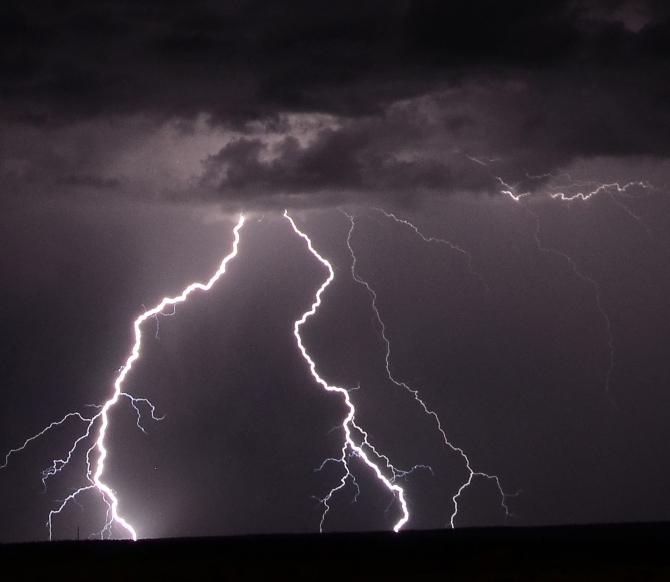
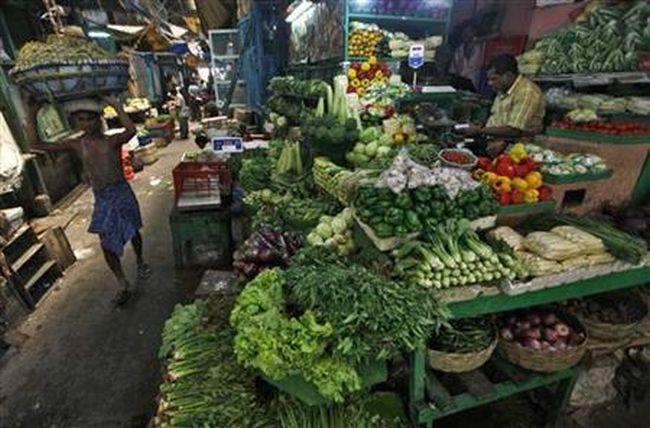
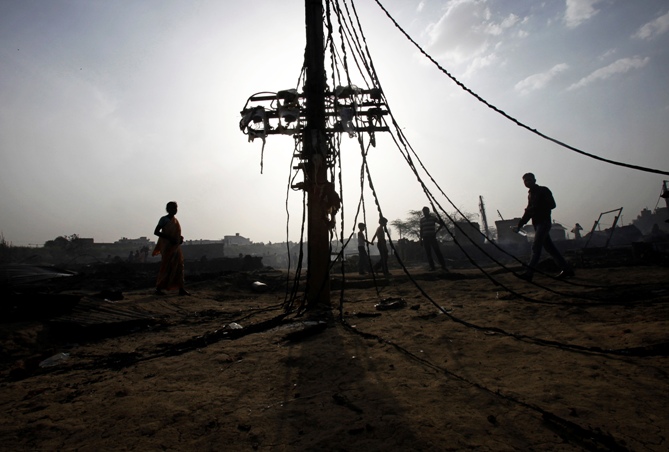
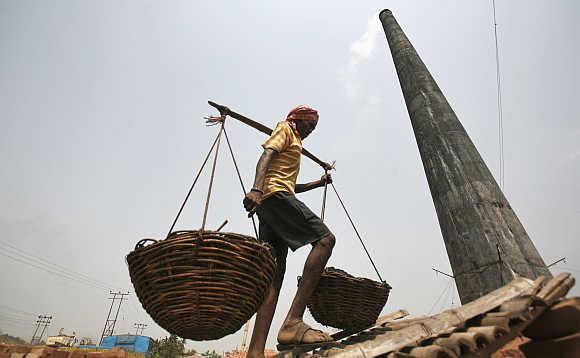
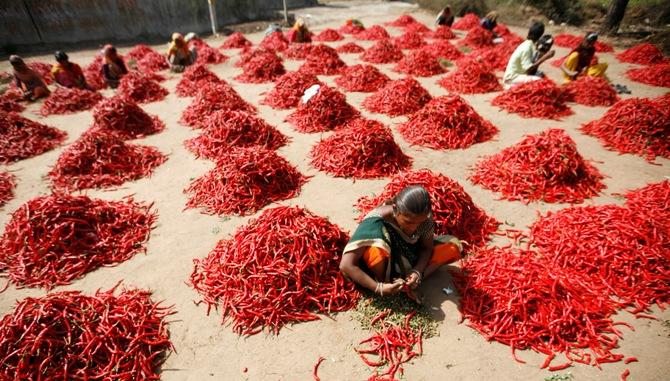

article